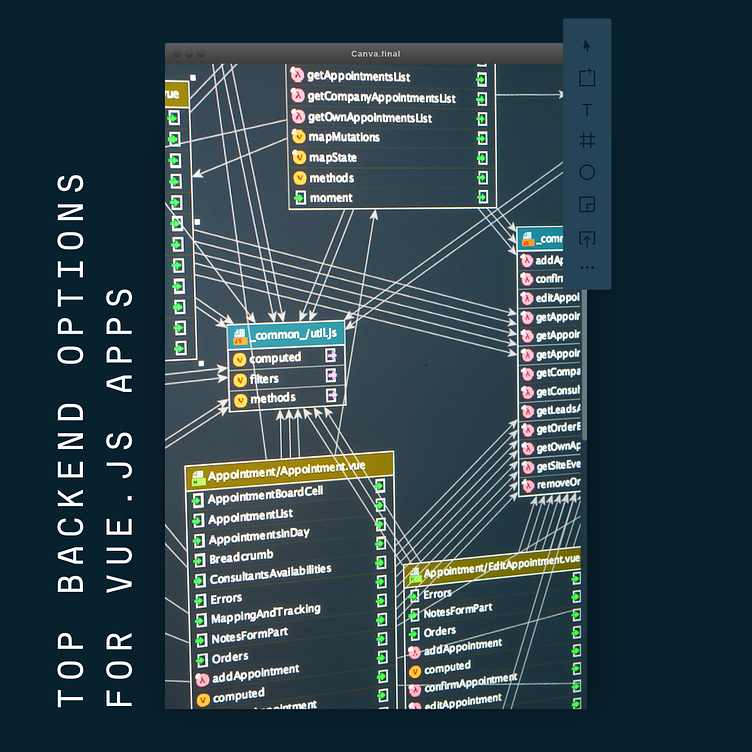Most popular backend options for Vue.js apps
Vue.js has gained immense popularity in the world of frontend development due to its simplicity, flexibility, and performance. However, when it comes to building full-fledged applications, integrating a backend becomes essential. In this post, we'll explore some of the most popular backend options that seamlessly integrate with Vue.js apps, providing developers with powerful tools to create robust and scalable web applications.
Node.js with Express.js:
Node.js, with its event-driven architecture, is a natural choice for building backend services for Vue.js applications.
Express.js, a minimalist web application framework for Node.js, offers a lightweight and flexible approach to building APIs and handling HTTP requests.
Integrating Node.js with Vue.js allows for a full-stack JavaScript development environment, streamlining the development process and enabling efficient code sharing between frontend and backend.
Laravel for PHP Developers:
Laravel, a PHP web application framework, provides developers with a rich set of features and tools for building secure and scalable backend services.
With Laravel's elegant syntax and expressive syntax, PHP developers can easily create RESTful APIs and handle database operations for Vue.js frontend applications.
Laravel's ecosystem includes robust libraries for authentication, caching, and queuing, making it an excellent choice for building complex web applications with Vue.js frontend interfaces.
Django for Python Enthusiasts:
Django, a high-level Python web framework, follows the "batteries-included" philosophy, offering developers a complete toolkit for building web applications.
With Django's built-in ORM (Object-Relational Mapper) and admin interface, developers can rapidly prototype backend services and manage data models for Vue.js frontend applications.
Django's security features, including built-in protection against common web vulnerabilities, make it a reliable choice for building secure web applications with Vue.js on the frontend.
Firebase for Real-time Data Sync:
Firebase, a comprehensive mobile and web application development platform, offers a suite of backend services, including a real-time database, authentication, and cloud functions.
Vue.js developers can leverage Firebase's real-time data synchronization capabilities to build reactive and collaborative web applications without managing server infrastructure.
Firebase's authentication services provide seamless integration with popular identity providers, enabling secure user authentication and authorization for Vue.js applications.
Conclusion: Choosing the right backend option for Vue.js applications depends on various factors, including developer expertise, project requirements, and scalability considerations. Whether you prefer a JavaScript-centric stack with Node.js and Express.js or opt for frameworks like Laravel, Django, or Firebase, each backend option offers unique features and advantages for building modern web applications with Vue.js on the frontend. By exploring the most popular backend options, developers can make informed decisions and architect robust solutions that meet the demands of today's dynamic web development landscape.
